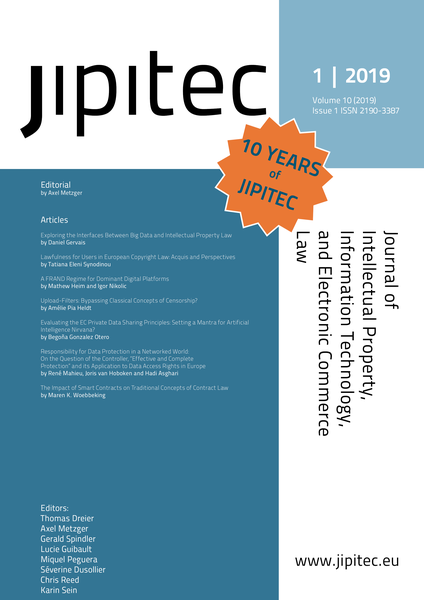Evaluating the EC Private Data Sharing Principles: Setting a Mantra for Artificial Intelligence Nirvana?
Keywords:
Artificial intelligence, best practices, data access, data re-use, data sharing, self-regulation, standard contract terms, the internet of thingsAbstract
On April 25, 2018, the European Commission (EC) published a series of communications related to data trading and artificial intelligence. One of them called “Towards a Common European Data Space”, came with a working document: “Guidance on Sharing Private Sector Data in the European Data Economy”. Both the Communication and the guidance introduce two different sets of general principles addressing data sharing, contractual best practices for business-to-business (B2B), and business-to-government (B2G) environments. On the same day, the EC also published a legislative proposal to review the Public Sector (PSI) Directive. These two simultaneous actions are part of a major package of measures, which aim to facilitate the creation of a common data space in the EU and foster European artificial intelligence development. This article focuses on the first action, the “Guidance on Sharing Private Sector Data in the European Economy”. First, because it is one of its kind. Second, although these principles do not qualify as soft law (lacking binding force but having legal effects) the Commission’s communications set action plans for future legislation. Third, because the ultimate goal of these principles is to boost European artificial intelligence (AI) development. However, do these principles set a viable legal framework for data sharing, or is this public policy tool merely a naïve expectation? Moreover, would these principles set a successful path toward a thriving European AI advancement? In this contribution, I try to sketch some answers to these and related questions.Published
2019-05-05
Issue
Section
Editorial

